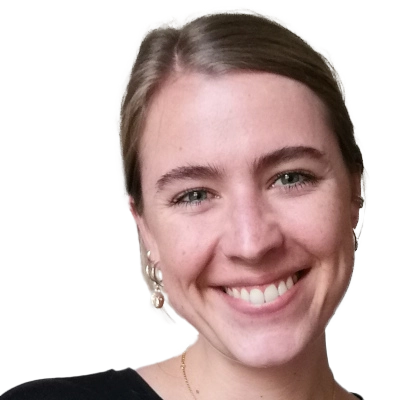20.07.2024
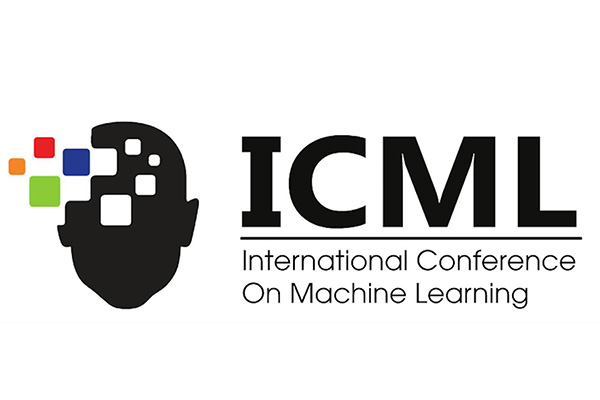
MCML researchers with 17 papers at ICML 2024
41st International Conference on Machine Learning (ICML 2024). Vienna, Austria, 21.07.2024–27.07.2024
We are happy to announce that MCML researchers are represented with 17 papers at ICML 2024:
ETHER: Efficient Finetuning of Large-Scale Models with Hyperplane Reflections.
41st International Conference on Machine Learning (ICML 2024). Vienna, Austria, Jul 21-27, 2024. URL. GitHub.
Abstract
Parameter-efficient finetuning (PEFT) has become ubiquitous to adapt foundation models to downstream task requirements while retaining their generalization ability. However, the amount of additionally introduced parameters and compute for successful adaptation and hyperparameter searches can explode quickly, especially when deployed at scale to serve numerous individual requests. To ensure effective, parameter-efficient, and hyperparameter-robust adaptation, we propose the ETHER transformation family, which performs Efficient fineTuning via HypErplane Reflections. By design, ETHER transformations require a minimal number of parameters, are less likely to deteriorate model performance, and exhibit robustness to hyperparameter and learning rate choices. In particular, we introduce ETHER and its relaxation ETHER+, which match or outperform existing PEFT methods with significantly fewer parameters (∼10-100 times lower than LoRA or OFT) across multiple image synthesis and natural language tasks without exhaustive hyperparameter tuning. Finally, we investigate the recent emphasis on Hyperspherical Energy retention for adaptation and raise questions on its practical utility.
MCML Authors
Improving Neural Additive Models with Bayesian Principles.
41st International Conference on Machine Learning (ICML 2024). Vienna, Austria, Jul 21-27, 2024. URL.
Abstract
Neural additive models (NAMs) enhance the transparency of deep neural networks by handling input features in separate additive sub-networks. However, they lack inherent mechanisms that provide calibrated uncertainties and enable selection of relevant features and interactions. Approaching NAMs from a Bayesian perspective, we augment them in three primary ways, namely by a) providing credible intervals for the individual additive sub-networks; b) estimating the marginal likelihood to perform an implicit selection of features via an empirical Bayes procedure; and c) facilitating the ranking of feature pairs as candidates for second-order interaction in fine-tuned models. In particular, we develop Laplace-approximated NAMs (LA-NAMs), which show improved empirical performance on tabular datasets and challenging real-world medical tasks.
MCML Authors
Provably Better Explanations with Optimized Aggregation of Feature Attributions.
41st International Conference on Machine Learning (ICML 2024). Vienna, Austria, Jul 21-27, 2024. URL.
Abstract
Using feature attributions for post-hoc explanations is a common practice to understand and verify the predictions of opaque machine learning models. Despite the numerous techniques available, individual methods often produce inconsistent and unstable results, putting their overall reliability into question. In this work, we aim to systematically improve the quality of feature attributions by combining multiple explanations across distinct methods or their variations. For this purpose, we propose a novel approach to derive optimal convex combinations of feature attributions that yield provable improvements of desired quality criteria such as robustness or faithfulness to the model behavior. Through extensive experiments involving various model architectures and popular feature attribution techniques, we demonstrate that our combination strategy consistently outperforms individual methods and existing baselines.
MCML Authors
Position: Insights from Survey Methodology can Improve Training Data.
41st International Conference on Machine Learning (ICML 2024). Vienna, Austria, Jul 21-27, 2024. URL.
Abstract
Whether future AI models are fair, trustworthy, and aligned with the public’s interests rests in part on our ability to collect accurate data about what we want the models to do. However, collecting high-quality data is difficult, and few AI/ML researchers are trained in data collection methods. Recent research in data-centric AI has show that higher quality training data leads to better performing models, making this the right moment to introduce AI/ML researchers to the field of survey methodology, the science of data collection. We summarize insights from the survey methodology literature and discuss how they can improve the quality of training and feedback data. We also suggest collaborative research ideas into how biases in data collection can be mitigated, making models more accurate and human-centric.
MCML Authors
Fair Off-Policy Learning from Observational Data.
41st International Conference on Machine Learning (ICML 2024). Vienna, Austria, Jul 21-27, 2024. URL.
Abstract
Algorithmic decision-making in practice must be fair for legal, ethical, and societal reasons. To achieve this, prior research has contributed various approaches that ensure fairness in machine learning predictions, while comparatively little effort has focused on fairness in decision-making, specifically off-policy learning. In this paper, we propose a novel framework for fair off-policy learning: we learn decision rules from observational data under different notions of fairness, where we explicitly assume that observational data were collected under a different – potentially discriminatory – behavioral policy. Importantly, our framework applies to different fairness notions for off-policy learning, where fairness is formalized based on actions or policy values. As our main contribution, we propose a neural network-based framework to learn optimal policies under different fairness notions. We further provide theoretical guarantees in the form of generalization bounds for the finite-sample version of our framework. We demonstrate the effectiveness of our framework through extensive numerical experiments using both simulated and real-world data. Altogether, our work enables algorithmic decision-making in a wide array of practical applications where fairness must be ensured.
MCML Authors
KernelSHAP-IQ: Weighted Least Square Optimization for Shapley Interactions.
41st International Conference on Machine Learning (ICML 2024). Vienna, Austria, Jul 21-27, 2024. URL.
Abstract
The Shapley value (SV) is a prevalent approach of allocating credit to machine learning (ML) entities to understand black box ML models. Enriching such interpretations with higher-order interactions is inevitable for complex systems, where the Shapley Interaction Index (SII) is a direct axiomatic extension of the SV. While it is well-known that the SV yields an optimal approximation of any game via a weighted least square (WLS) objective, an extension of this result to SII has been a long-standing open problem, which even led to the proposal of an alternative index. In this work, we characterize higher-order SII as a solution to a WLS problem, which constructs an optimal approximation via SII and k-Shapley values (k-SII). We prove this representation for the SV and pairwise SII and give empirically validated conjectures for higher orders. As a result, we propose KernelSHAP-IQ, a direct extension of KernelSHAP for SII, and demonstrate state-of-the-art performance for feature interactions.
MCML Authors
Position: Why We Must Rethink Empirical Research in Machine Learning.
41st International Conference on Machine Learning (ICML 2024). Vienna, Austria, Jul 21-27, 2024. URL.
Abstract
We warn against a common but incomplete understanding of empirical research in machine learning (ML) that leads to non-replicable results, makes findings unreliable, and threatens to undermine progress in the field. To overcome this alarming situation, we call for more awareness of the plurality of ways of gaining knowledge experimentally but also of some epistemic limitations. In particular, we argue most current empirical ML research is fashioned as confirmatory research while it should rather be considered exploratory.
MCML Authors
Position: Embracing Negative Results in Machine Learning.
41st International Conference on Machine Learning (ICML 2024). Vienna, Austria, Jul 21-27, 2024. URL.
Abstract
Publications proposing novel machine learning methods are often primarily rated by exhibited predictive performance on selected problems. In this position paper we argue that predictive performance alone is not a good indicator for the worth of a publication. Using it as such even fosters problems like inefficiencies of the machine learning research community as a whole and setting wrong incentives for researchers. We therefore put out a call for the publication of “negative” results, which can help alleviate some of these problems and improve the scientific output of the machine learning research community. To substantiate our position, we present the advantages of publishing negative results and provide concrete measures for the community to move towards a paradigm where their publication is normalized.
MCML Authors
Position: A Call to Action for a Human-Centered AutoML Paradigm.
41st International Conference on Machine Learning (ICML 2024). Vienna, Austria, Jul 21-27, 2024. URL.
Abstract
Automated machine learning (AutoML) was formed around the fundamental objectives of automatically and efficiently configuring machine learning (ML) workflows, aiding the research of new ML algorithms, and contributing to the democratization of ML by making it accessible to a broader audience. Over the past decade, commendable achievements in AutoML have primarily focused on optimizing predictive performance. This focused progress, while substantial, raises questions about how well AutoML has met its broader, original goals. In this position paper, we argue that a key to unlocking AutoML’s full potential lies in addressing the currently underexplored aspect of user interaction with AutoML systems, including their diverse roles, expectations, and expertise. We envision a more human-centered approach in future AutoML research, promoting the collaborative design of ML systems that tightly integrates the complementary strengths of human expertise and AutoML methodologies.
MCML Authors
Position: Bayesian Deep Learning is Needed in the Age of Large-Scale AI.
41st International Conference on Machine Learning (ICML 2024). Vienna, Austria, Jul 21-27, 2024. URL.
Abstract
In the current landscape of deep learning research, there is a predominant emphasis on achieving high predictive accuracy in supervised tasks involving large image and language datasets. However, a broader perspective reveals a multitude of overlooked metrics, tasks, and data types, such as uncertainty, active and continual learning, and scientific data, that demand attention. Bayesian deep learning (BDL) constitutes a promising avenue, offering advantages across these diverse settings. This paper posits that BDL can elevate the capabilities of deep learning. It revisits the strengths of BDL, acknowledges existing challenges, and highlights some exciting research avenues aimed at addressing these obstacles. Looking ahead, the discussion focuses on possible ways to combine large-scale foundation models with BDL to unlock their full potential.
MCML Authors
Generalizing orthogonalization for models with non-linearities.
41st International Conference on Machine Learning (ICML 2024). Vienna, Austria, Jul 21-27, 2024. URL.
Abstract
The complexity of black-box algorithms can lead to various challenges, including the introduction of biases. These biases present immediate risks in the algorithms’ application. It was, for instance, shown that neural networks can deduce racial information solely from a patient’s X-ray scan, a task beyond the capability of medical experts. If this fact is not known to the medical expert, automatic decision-making based on this algorithm could lead to prescribing a treatment (purely) based on racial information. While current methodologies allow for the ‘‘orthogonalization’’ or ‘’normalization’’ of neural networks with respect to such information, existing approaches are grounded in linear models. Our paper advances the discourse by introducing corrections for non-linearities such as ReLU activations. Our approach also encompasses scalar and tensor-valued predictions, facilitating its integration into neural network architectures. Through extensive experiments, we validate our method’s effectiveness in safeguarding sensitive data in generalized linear models, normalizing convolutional neural networks for metadata, and rectifying pre-existing embeddings for undesired attributes.
MCML Authors
Second-Order Uncertainty Quantification: A Distance-Based Approach.
41st International Conference on Machine Learning (ICML 2024). Vienna, Austria, Jul 21-27, 2024. URL.
Abstract
In the past couple of years, various approaches to representing and quantifying different types of predictive uncertainty in machine learning, notably in the setting of classification, have been proposed on the basis of second-order probability distributions, i.e., predictions in the form of distributions on probability distributions. A completely conclusive solution has not yet been found, however, as shown by recent criticisms of commonly used uncertainty measures associated with second-order distributions, identifying undesirable theoretical properties of these measures. In light of these criticisms, we propose a set of formal criteria that meaningful uncertainty measures for predictive uncertainty based on second-order distributions should obey. Moreover, we provide a general framework for developing uncertainty measures to account for these criteria, and offer an instantiation based on the Wasserstein distance, for which we prove that all criteria are satisfied.
MCML Authors
Meta-Learners for Partially-Identified Treatment Effects Across Multiple Environments.
41st International Conference on Machine Learning (ICML 2024). Vienna, Austria, Jul 21-27, 2024. URL.
Abstract
Estimating the conditional average treatment effect (CATE) from observational data is relevant for many applications such as personalized medicine. Here, we focus on the widespread setting where the observational data come from multiple environments, such as different hospitals, physicians, or countries. Furthermore, we allow for violations of standard causal assumptions, namely, overlap within the environments and unconfoundedness. To this end, we move away from point identification and focus on partial identification. Specifically, we show that current assumptions from the literature on multiple environments allow us to interpret the environment as an instrumental variable (IV). This allows us to adapt bounds from the IV literature for partial identification of CATE by leveraging treatment assignment mechanisms across environments. Then, we propose different model-agnostic learners (so-called meta-learners) to estimate the bounds that can be used in combination with arbitrary machine learning models. We further demonstrate the effectiveness of our meta-learners across various experiments using both simulated and real-world data. Finally, we discuss the applicability of our meta-learners to partial identification in instrumental variable settings, such as randomized controlled trials with non-compliance.
MCML Authors
Variational Learning is Effective for Large Deep Networks.
41st International Conference on Machine Learning (ICML 2024). Vienna, Austria, Jul 21-27, 2024. URL. GitHub.
Abstract
We give extensive empirical evidence against the common belief that variational learning is ineffective for large neural networks. We show that an optimizer called Improved Variational Online Newton (IVON) consistently matches or outperforms Adam for training large networks such as GPT-2 and ResNets from scratch. IVON’s computational costs are nearly identical to Adam but its predictive uncertainty is better. We show several new use cases of IVON where we improve finetuning and model merging in Large Language Models, accurately predict generalization error, and faithfully estimate sensitivity to data. We find overwhelming evidence that variational learning is effective.
MCML Authors
Connecting the Dots: Is Mode Connectedness the Key to Feasible Sample-Based Inference in Bayesian Neural Networks?.
41st International Conference on Machine Learning (ICML 2024). Vienna, Austria, Jul 21-27, 2024. URL.
Abstract
A major challenge in sample-based inference (SBI) for Bayesian neural networks is the size and structure of the networks’ parameter space. Our work shows that successful SBI is possible by embracing the characteristic relationship between weight and function space, uncovering a systematic link between overparameterization and the difficulty of the sampling problem. Through extensive experiments, we establish practical guidelines for sampling and convergence diagnosis. As a result, we present a Bayesian deep ensemble approach as an effective solution with competitive performance and uncertainty quantification.
MCML Authors
SA-DQAS: Self-attention Enhanced Differentiable Quantum Architecture Search.
Workshop Differentiable Almost Everything: Differentiable Relaxations, Algorithms, Operators, and Simulators at the 41st International Conference on Machine Learning (ICML 2024). Vienna, Austria, Jul 21-27, 2024. PDF.
Abstract
We introduce SA-DQAS in this paper, a novel framework that enhances the gradient-based Differentiable Quantum Architecture Search (DQAS) with a self-attention mechanism, aimed at optimizing circuit design for Quantum Machine Learning (QML) challenges. Analogous to a sequence of words in a sentence, a quantum circuit can be viewed as a sequence of placeholders containing quantum gates. Unlike DQAS, each placeholder is independent, while the self-attention mechanism in SA-DQAS helps to capture relation and dependency information among each operation candidate placed on placeholders in a circuit. To evaluate and verify, we conduct experiments on job-shop scheduling problems (JSSP), Max-cut problems, and quantum fidelity. Incorporating self-attention improves the stability and performance of the resulting quantum circuits and refines their structural design with higher noise resilience and fidelity. Our research demonstrates the first successful integration of self-attention with DQAS.
MCML Authors
Causal Effect Identification in LiNGAM Models with Latent Confounders.
41st International Conference on Machine Learning (ICML 2024). Vienna, Austria, Jul 21-27, 2024. URL.
MCML Authors
20.07.2024
Related
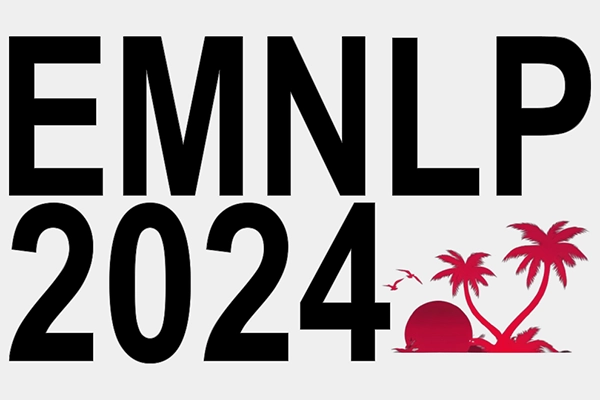
06.11.2024
MCML researchers with 20 papers at EMNLP 2024
Conference on Empirical Methods in Natural Language Processing (EMNLP 2024). Miami, FL, USA, 12.11.2024 - 16.11.2024
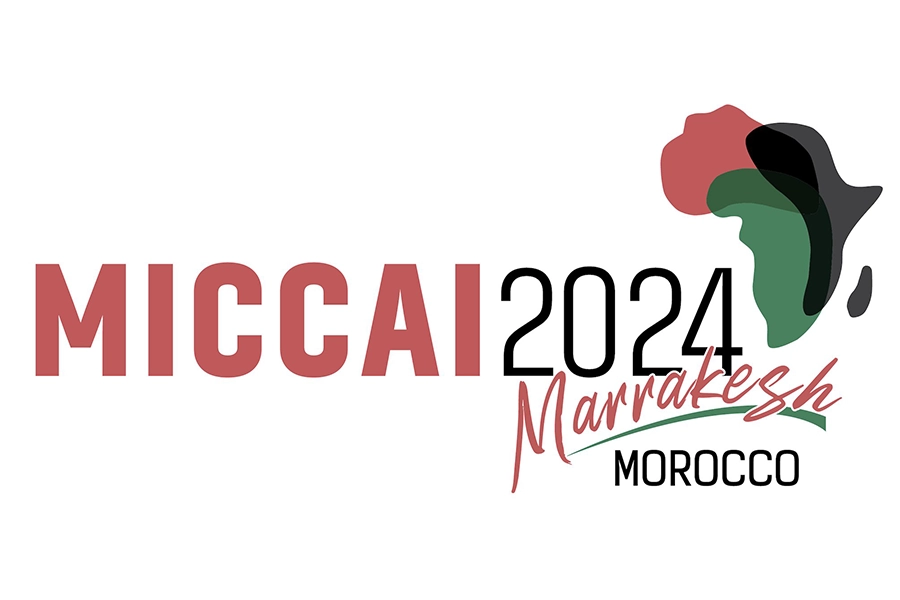
01.10.2024
MCML researchers with 16 papers at MICCAI 2024
27th International Conference on Medical Image Computing and Computer Assisted Intervention (MICCAI 2024). Marrakesh, Morocco, 06.10.2024 - 10.10.2024
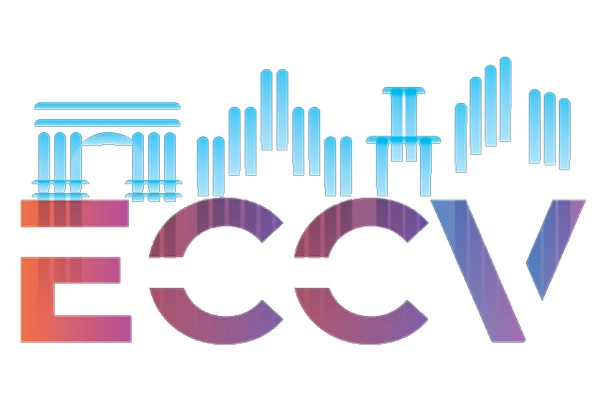
26.09.2024
MCML researchers with 18 papers at ECCV 2024
18th European Conference on Computer Vision (ECCV 2024). Milano, Italy, 29.09.2024 - 04.10.2024
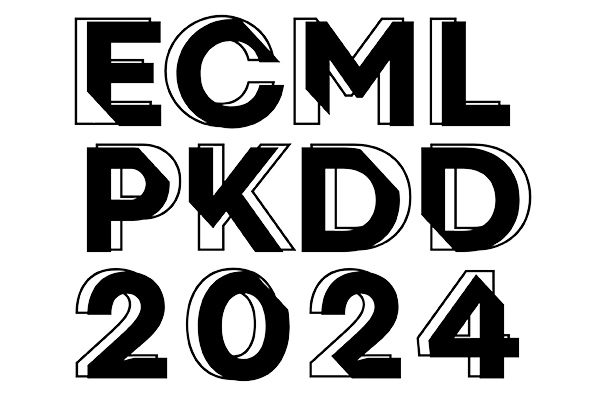
10.09.2024
MCML at ECML-PKDD 2024
We are happy to announce that MCML researchers are represented at ECML-PKDD 2024.
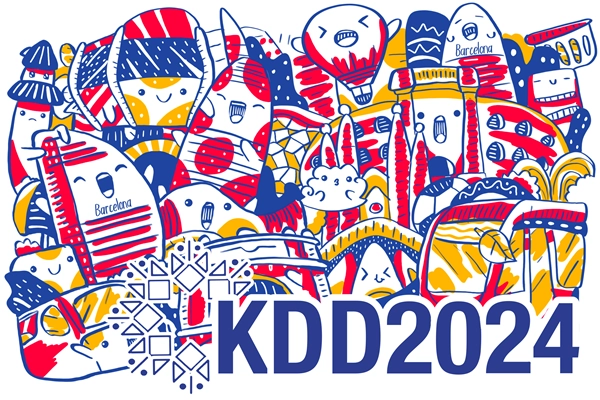
20.08.2024
MCML researchers with two papers at KDD 2024
30th ACM SIGKDD International Conference on Knowledge Discovery and Data (KDD 2024). Barcelona, Spain, 25.08.2024 - 29.08.2024



























